If you’ve ever had a neighbor who didn’t properly dispose of their waste, or perhaps, you’ve encountered some sewage problems in your community, you know how unpleasant these situations can be. But the problems caused by sewage are more than just unpleasant – they pose a real risk to human health and the environment.
Sewage problems occur when wastewater from homes, businesses, and industries is not properly treated before being discharged. This untreated sewage can cause numerous health problems and can severely damage the environment.
Problems Caused by Sewage: Health & Environment Risks
Key Takeaways:
- Untreated sewage poses serious health risks to humans and can contribute to the spread of waterborne diseases.
- Sewage contaminants can cause significant harm to the environment and marine life.
- Outdated sewer systems and lack of maintenance exacerbate sewage problems, leading to overflow and blockages.
- Sewage issues can have social and economic implications, including property devaluation, tourism impact, and public health costs.
- Addressing sewage problems is essential to mitigate the health and environmental risks they pose.
Health Risks Associated with Sewage
When sewage is not properly disposed of, it can pose significant health risks to individuals and communities. Sewage contains harmful pathogens that can cause a wide range of sewage-related illnesses. These illnesses are typically spread through water sources that have been contaminated by sewage. Some of the most common waterborne diseases caused by sewage include cholera, typhoid fever, and hepatitis A, among others.
The transmission of these pathogens can occur through direct contact with sewage-contaminated water or items that have come into contact with contaminated water. In addition to causing illness, sewage contamination can also lead to skin irritations and rashes.
The contamination of water sources by sewage can have severe consequences for public health. Individuals who consume contaminated water are at risk of developing serious illnesses, especially if they have compromised immune systems. Additionally, the health risks associated with sewage can be especially problematic in areas where access to clean water is limited.
Environmental Impact of Sewage
Sewage problems not only pose health risks but also have significant environmental repercussions. One of the major consequences of sewage pollution is water pollution. Sewage contains harmful contaminants that can pollute water bodies, damaging aquatic ecosystems and endangering marine life. It can also contribute to the growth of harmful algae blooms, which can further harm the environment.
The excessive growth of algae due to sewage pollution can lead to massive blooms, preventing sunlight from reaching the bottom of water bodies and reducing oxygen levels, causing harm to aquatic plants and animals. These blooms can also result in the production of harmful toxins that can further damage marine life and pose a risk to human health.
Sewage-related Infrastructure Issues
When it comes to sewage problems, outdated sewer systems are a major challenge. These systems may not be equipped to handle the amount of waste generated, leading to frequent overflow and blockages. This exacerbates the sewage problems and can cause serious health and environmental risks.
Regular maintenance and upgrades can help prevent these issues. By investing in the necessary repairs and improvements, you can ensure that your sewer system operates efficiently and effectively, reducing the likelihood of overflow and blockages.
Furthermore, it is critical to take a proactive approach to maintenance, rather than waiting for problems to occur. This means conducting regular inspections, cleaning and flushing sewer lines, and repairing any damage or defects as soon as possible. By doing so, you can avoid costly repairs and potential health hazards down the line.
Social and Economic Implications
The impact of sewage problems extends beyond health and environmental risks. Property devaluation is one of the most significant effects of sewage issues. Sewage-related problems can decrease property values, making it difficult for homeowners to sell their homes at a fair price.
Tourism, another critical sector, is also affected by sewage-related problems. When waters are contaminated, tourists avoid them, undermining local businesses that rely on the tourism industry. The tourism industry’s revenues drop, resulting in job losses and reduced economic growth.
The financial burden of public health costs and clean-up expenses can add up quickly. Health authorities must spend considerable amounts of money to address diseases and illnesses caused by sewage problems. Similarly, cleaning up water bodies affected by sewage requires expensive equipment and resources.
Overall, the social and economic implications of sewage problems are significant and cannot be ignored. The real cost of these problems extends far beyond the visible pollutants and damage to ecosystems. Addressing sewage problems has both an economic and a social benefit that cannot be disregarded.
Conclusion
In conclusion, addressing sewage problems is crucial to mitigating the health and environmental risks they pose. By taking action to prevent and manage sewage-related issues, you can help keep your community safe and protect water sources from contamination. One of the most important steps to take is ensuring regular maintenance and upgrades to outdated sewer systems, which can prevent overflow and blockages.
Additionally, it’s essential to be mindful of the social and economic implications of sewage problems. These can include property devaluation, declines in tourism due to contaminated water bodies, and public health costs and clean-up expenses. Taking proactive measures to prevent sewage-related issues can ultimately save communities time and money.
To recap, sewage problems can lead to waterborne illnesses, contamination of water sources, harm to ecosystems and marine life, infrastructure challenges, and social and economic implications. But by prioritizing preventative measures and addressing issues promptly, you can help ensure a safer and healthier environment for yourself and those around you.
FAQ
What are the health risks associated with sewage?
Sewage exposes individuals to various health risks, including waterborne diseases and the transmission of pathogens. Contaminated water sources can lead to illnesses such as diarrhea, cholera, and hepatitis.
How does sewage impact the environment?
Sewage can have significant environmental implications. It contributes to water pollution, harming ecosystems and marine life. The growth of algae blooms caused by sewage can deplete oxygen levels in aquatic environments, resulting in the suffocation of marine species.
What are some common infrastructure issues related to sewage?
Outdated sewer systems are a common problem, leading to overflow and blockages. These issues worsen sewage problems and require regular maintenance and upgrades to prevent further complications.
What are the social and economic implications of sewage problems?
Sewage problems can have detrimental effects on communities. They can lead to property devaluation, as polluted water bodies decrease the attractiveness of real estate. Contaminated water sources also impact tourism, resulting in economic losses. Additionally, public health costs and clean-up expenses can place a financial burden on affected areas.
What should be done to address sewage-related issues?
To mitigate sewage problems, it is crucial to invest in proper wastewater treatment facilities and maintain existing sewer systems. Implementing regular inspections and upgrades can help prevent overflow and blockages. Additionally, promoting public awareness and individual responsibility in proper waste disposal can contribute to the prevention of sewage-related issues.
Denver Clean-up & Restoration Services
With over 150 years of combined experience, the Colorado Cleanup Services, Inc. team has the knowledge, skill, and commitment necessary to handle any emergency cleanup services you may require. From flood and fire damage restoration to sewage backup, and coronavirus cleanup services in Denver, CO, you can always turn to us when you need deep, disinfecting cleaning for your home or business.
Family-owned and operated, our cleaning company is proud to provide the services of trained and certified technicians to all our clients. Our impressive team knows what it takes to return damaged properties to their original condition with the highest level of professionalism. Don’t settle for anything less when you require high-quality disaster recovery services. Our team is available 24 hours a day, 7 days a week to ensure you receive the help you need when you need it give us a call: 303-237-4406.







